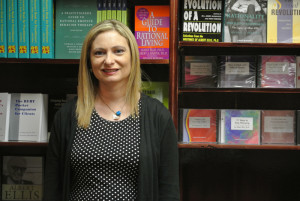by Deniz Sidali, M.A.
In today’s society and especially in big cities such as New York, multi-tasking is heavily emphasized and appears to be a prerequisite for city dwellers. Even in job postings, the potential employers may indicate, “Must be good at multi-tasking”. But, what does multi-tasking actually entail? Well, for starters it involves being able to perform multiple, simple skill level tasks simultaneously in order to consolidate one’s time and efforts in completing these activities. The aim of multi-tasking is to be not only more efficient, but to save time for other activities and leisure time. The other day I observed myself doing multiple tasks at once. And I found myself asking, “Why”? Why do I have to do multiple tasks at once? I actually discovered that I don’t enjoy eating my supper, talking on the phone, and typing emails all at the same time. The end result of multi-tasking makes me dislike mundane tasks even more and fosters an inability for me to enjoy leisure activities such as eating food, talking to a friend, or watching TV.
Multi-tasking divides my attention, couples undesirable tasks with desirable activities, and deters me from enjoying the process of doing these activities by focusing on the end result. “Just Get It Done and Move On” has been replaced with “Focus on the Present, Relax and Enjoy the Ride.” So I said to myself, “From now on, I am going to make a concerted effort to multitask as less as possible”. “There is no law stating that we must multi-task in order to be efficient, good at what we do, and it certainly doesn’t make us happier”. I vowed that I would try to be more mindful in the moment, try to enjoy every aspect of my experience while performing a task (regardless of whether it is a desirable or undesirable task), and live life as it comes.
Just as an example, I stopped checking my emails or social media while eating meals. I focus instead on the smell, texture and taste of my food. I eat my food at a slower pace and use a plate instead of Tupperware. I clear my mind of any negative thoughts by acknowledging them and putting them to the side. If I am dining with another person or eating lunch with a colleague, I focus on developing my relationships by talking to the other person instead of eating while working on the computer at my desk, staring at my cell phone, reading and responding to emails, etc., like most people do these days. I discovered that when I started being present and mindful, I actually felt a lot better about myself and life. Initially, there is the possibility of some people experiencing frustration intolerance or discomfort when they stop multitasking. However, this can diminish over time with patience and consistency. When traveling abroad, I realized how much peaceful and happier I was when I had limited access to the internet. Mindfulness is not a new idea or reinventing the wheel. Being mindful and/or doing one thing at a time is not an unusual phenomenon. Multitasking, however, is an increasing trend that has become ingrained into our daily routine. And, it is most likely unhealthy for our minds, bodies, and spirit.

